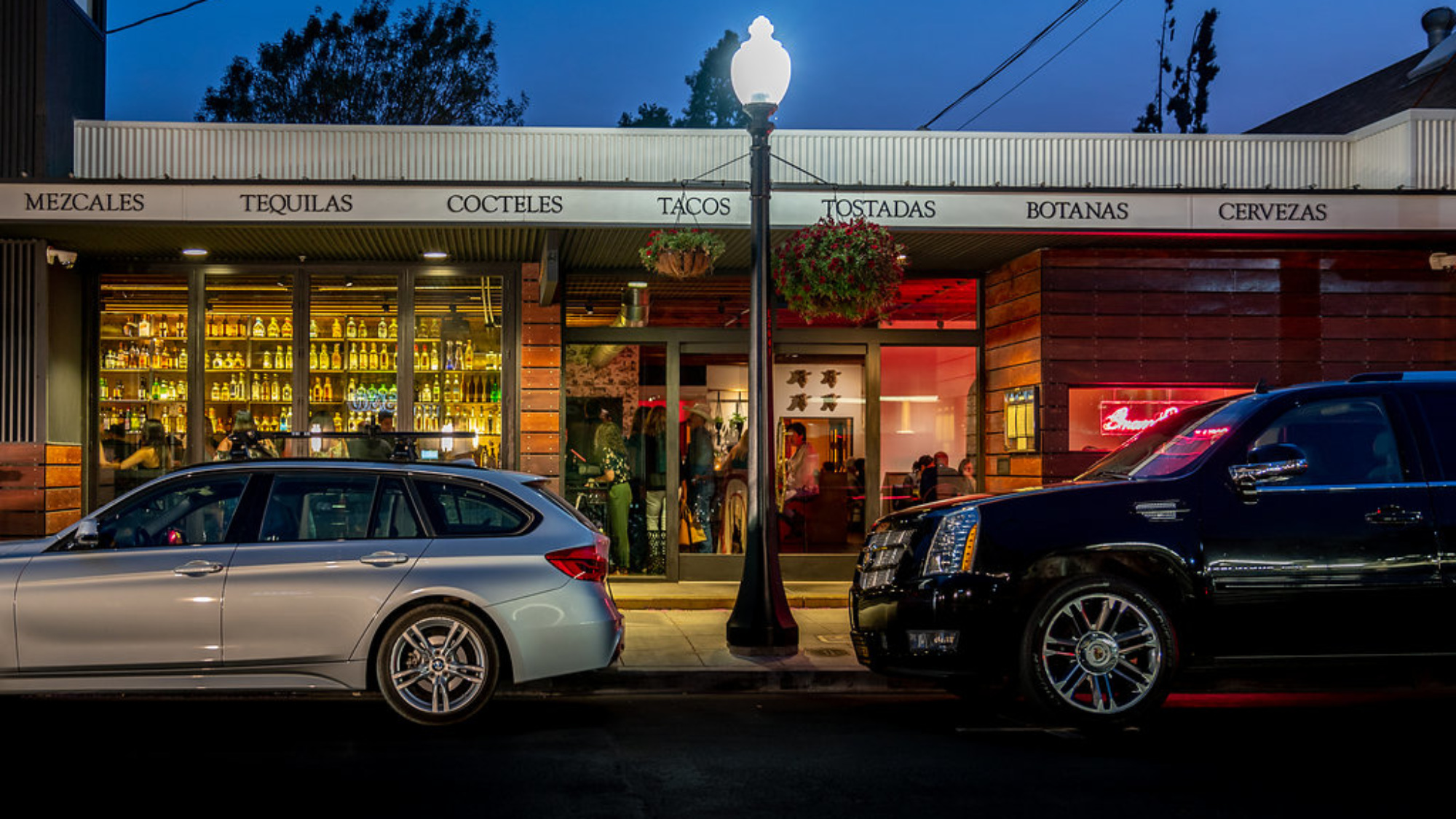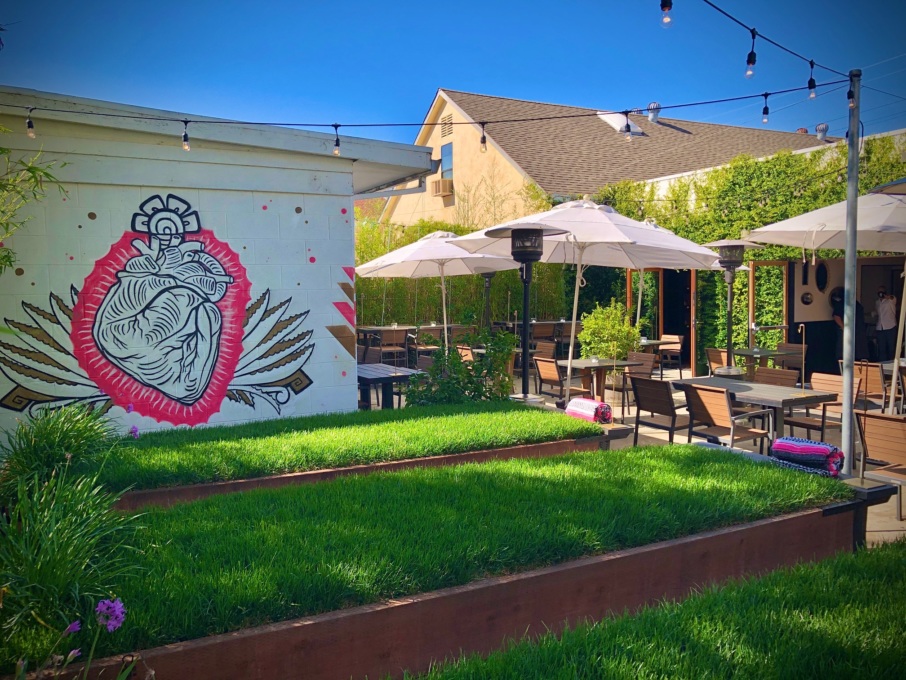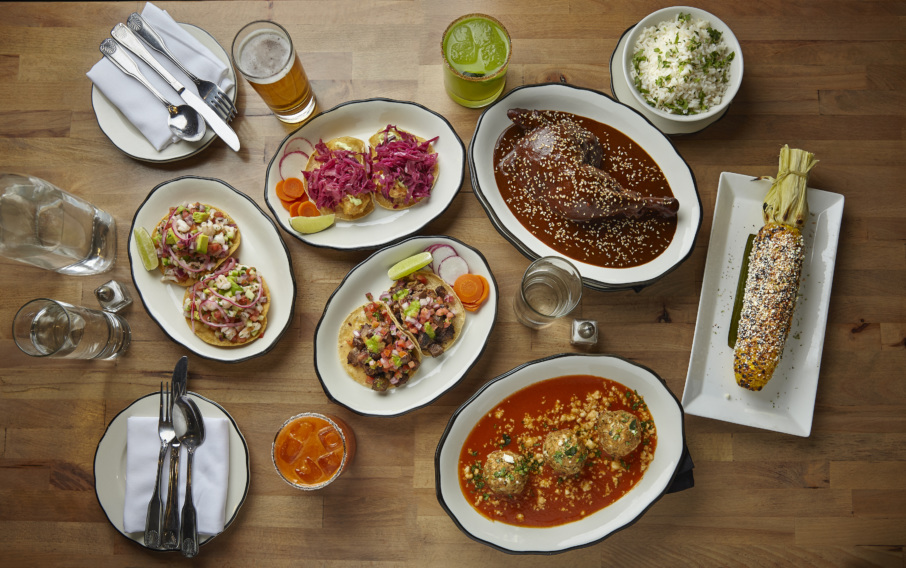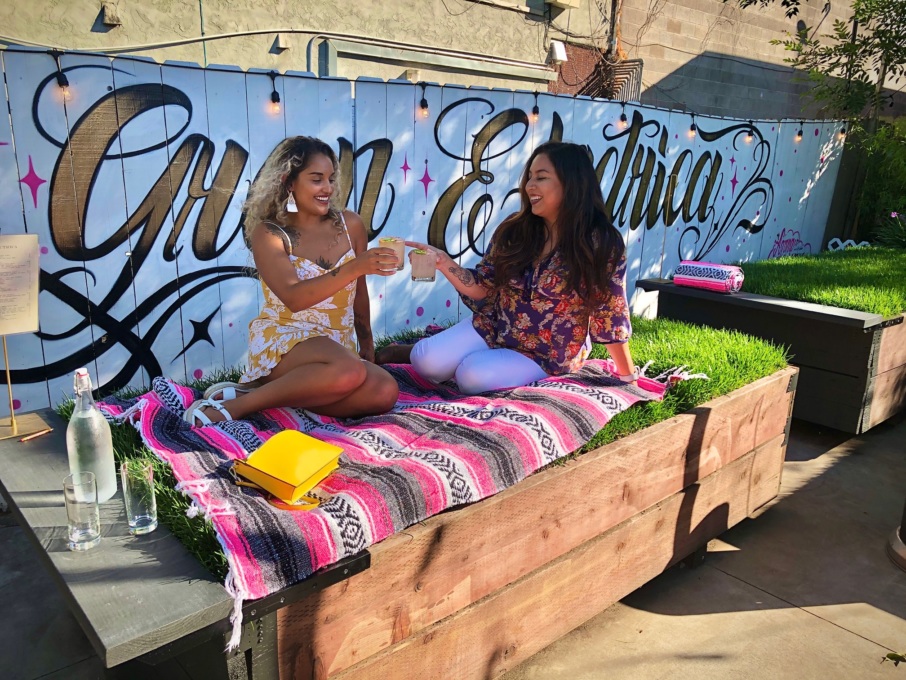Gran Eléctrica Napa
Napa Valley
Close

The Road Back San Francisco Napa
Tamer Hamawi is the owner of Gran Electrica in Napa, Calif., as well as Colonie, Gran Electrica, and Pips in Brooklyn, N.Y.
In late May, Hamawi reopened Gran Electrica in Napa for dine-in service, in accordance with state guidelines. But after just one week of offering both indoor and outdoor dining at 50% capacity, he decided to promptly shutter dining at the restaurant because of safety and feasibility concerns. On July 29, however, he decided to reopen the Napa restaurant for outdoor dining. His other three restaurants in New York are also currently reopened for outdoor dining.
Hamawi shared with Resy why he decided to reopen, and the challenges he faces as a restaurateur.
*****
After we closed dine-in service at Gran Electrica in June, it was a really difficult time for us. Operating these past two months doing a meager takeout business was tough; most of the surrounding businesses had already relaunched their restaurants fully, with indoor and outdoor dining. For us, we just couldn’t justify the increased risk exposure to the virus, while at the same time operating a restaurant with such limited capacity. It simply wasn’t feasible. As disheartening as it was to shut back down, we stood by our decision to put customer and staff safety ahead of profits, and reverted back to takeout only. Despite the financial hit, running low on PPP (Payment Protection Program) loan funds, and with zero relief from our landlord, the rise of COVID-19 cases in Napa (and California at large) reaffirms, for us, that we erred correctly on the side of public health.

Ultimately, it has become quite clear that we are looking at indoor dining restrictions until at least the end of the year, and takeout sales alone will not keep our business afloat. If we didn’t generate more revenue soon, we simply wouldn’t make it. We needed a solution, and we needed to get creative. We used these past two months to rethink how we could operate feasibly, doing what we do well in a low-risk environment. Following all the health and safety protocols presents a special challenge because they have a tendency to sanitize the entire experience. We knew we needed to think outside the box to make dining outside with us a little more fun and unique as well. Doing so also proved to be inspiring and energizing for us, raising our spirits and hopes for the future of Gran Electrica as we created a new approach to service and the dining experience.
So we set to work and began revising our service model. With outdoor dining as the only option now available to us, and with both our typically thriving bars completely out of action, we needed to simplify our concept and scale down in order to make the numbers work. We believed that minimizing the amount of staff required to service our restaurant was an easy way to significantly minimize risk exposure to fellow staff members, as well as to our guests. Furthermore, with such limited capacity, it’s impossible to cover our costs with a labor-intensive service approach, so we brought back a small team and created a new menu-card system, significantly reducing the need for guest and staff contact.

Prior to the pandemic, the single biggest issue facing Napa Valley restaurants was the staffing crisis. We are all fighting over the same very small talent pool, and with COVID-19 cases rising, combined with supplemental unemployment benefits, it has been nearly impossible to find staff. As Congress continues to debate the continuation of said benefits, it is unclear whether that situation will improve anytime soon. Minimizing our staffing needs through this revised service model may, in fact, be a long-term solution to our staffing issues — if we can actually make it through.
Our new low-contact approach is a very basic system: When our hosts escort guests to their table, they provide them with a menu card and a sanitized golf pencil. Guests simply fill out a menu card and clip it to their gold sign holder that’s visible to our staff from any vantage point. Menu cards are replaced and orders are submitted to our bar and kitchen. The guest can fully control the flow of items by clipping a filled-out card whenever they need anything, with absolutely no dialogue required unless requested. Our servers are still available to answer any questions they might have, and to give recommendations, but this approach has, so far, been very much appreciated by our customers and staff.
Is it our idea of amazing customer service? Not really. But under the current conditions, it’s all about respecting public health protocols while retaining some sense of identity and hospitality. These are the difficult choices we restaurant owners are being forced to make.
After deciding on a new service model, we knew we had to focus on the atmosphere, and we desperately wanted to reopen with something new and exciting to offer. So we worked on making the back patio a special space. We had recently planted our raised garden beds with our typical array of Mexican herbs, peppers, and squash for the spring and summer but we decided that they were literally eating up too much valuable outdoor dining real estate. We thought we’d have to give them away and try to get a few more tables in, but my uber creative wife came up with a brilliant idea to convert the planted boxes into individually raised picnic beds with fresh grass. I loved it. We immediately purchased some sod, gravel, and topsoil, and laid it down as quickly as we could so it would be ready for our proposed relaunch date. To our amateur gardeners’ surprise, it rooted, and actually grew several inches. It looked incredible. We were starting to feel an excitement we hadn’t felt in months. We knew people would love it.
We didn’t stop there. We commissioned our muralist DJ Agana to do a new piece on the side fence, hung up more string lights, repainted our tabletops, and gave our garden a little makeover it thoroughly deserved. We were truly thrilled with our improvements.

Feasibility is still an issue, though, even with outdoor dining back at the restaurant. Truth be told, this might be our last hurrah. If we do go out, we want to go out with a bang. Aside from the new mural, my wife and I did all the work ourselves and kept our expenses low. This is money we really don’t have to spend but, at the same time, it was important to offer up something fun and interesting during this time of despair. Having already spent $5,000 getting our restaurant COVID-ready on the first reopening, ultimately we only spent about $1,000 on this second reopening. However, it will take a lot more than $1,000 to keep us from going under. We anticipate that without any additional support from the government, and unless our landlord can show any sort of empathy in our situation, we don’t really see us making it to 2021.
On a more positive note, so far the response from our clientele has been phenomenal. We reopened earlier this month and have been consistently full, even having to turn away a few guests on a nightly basis. The picnic beds, in particular, have been highly sought after. We are booking out every night, and the beds have gone viral on Instagram. It’s been our most successful social media campaign yet by far.
Our guests seem excited by our new service format, and they appreciate our efforts to minimize contact as much as possible. Our staff feel the same. However, typically, we would be operating at three times the capacity at this time of year, and our large interior dining room remains empty. It is truly painful turning away business with so much free space inside, and a desperately low bank account. And while we are somewhat buoyed by this new buzz and are thrilled with our renovations, we understand that this service model at our current rate of rent is not sustainable. With the lack of bar revenue that our two bars typically generate, we are really down about 75% from last year’s business.
If there is no restaurant industry bailout, it will be another fight with the landlord. If he is not willing to offer any support, the numbers will simply not work. We also have the threat of colder winter months quickly approaching. For our three restaurants in New York, this is especially troublesome, as by October it is simply too cold to dine outdoors. As we witness cases continuing to rise across the country, and the threat of another shutdown looming, it remains to be seen how any one can survive on just takeout sales. I’m not sure any restaurants currently battling their way through this will be able to survive another shutdown. The industry will be decimated.
It is important for diners to understand how difficult the situation is for restaurants right now, and to perhaps be a little forgiving during these trying times. Oh, and please don’t no-show your reservations. That really hurts. Most of us have poured our life savings into our businesses, and we work our butts off trying to keep costs down while pushing to generate as much revenue as possible. We work long and stressful hours for sometimes very little financial reward. It’s all about margins in the restaurant game, and for most they run incredibly thin. It is possible that like many small business owners, we will not be able to keep our doors open long enough to make it to a post-COVID-19 world. But, we will do our best to keep doing what we do well — creating an ambience and imaginative spaces with good food, drink, and music. And we will keep offering people pleasure for now, as we can, on a bright Mexican blanket, placed on a raised bed of grass that my wife and I have trimmed by hand.
Tamer Hamawi is the owner of Gran Electrica in Napa, CA, as well as Colonie, Gran Electrica, and Pips in Brooklyn, NY.